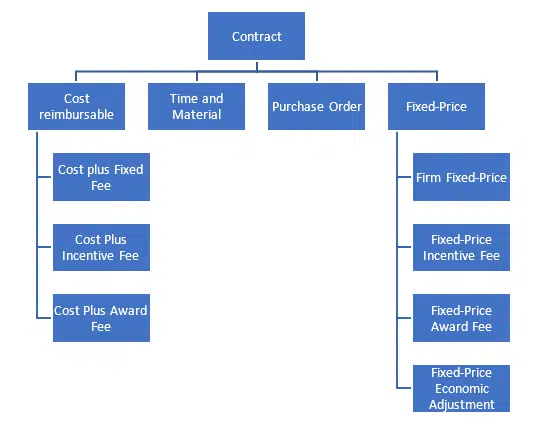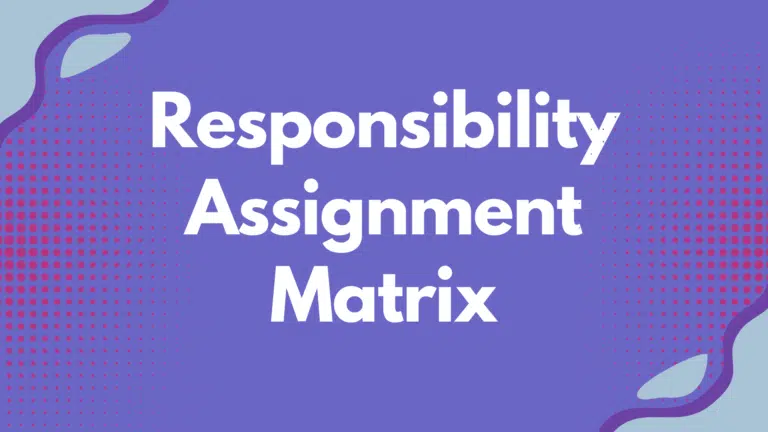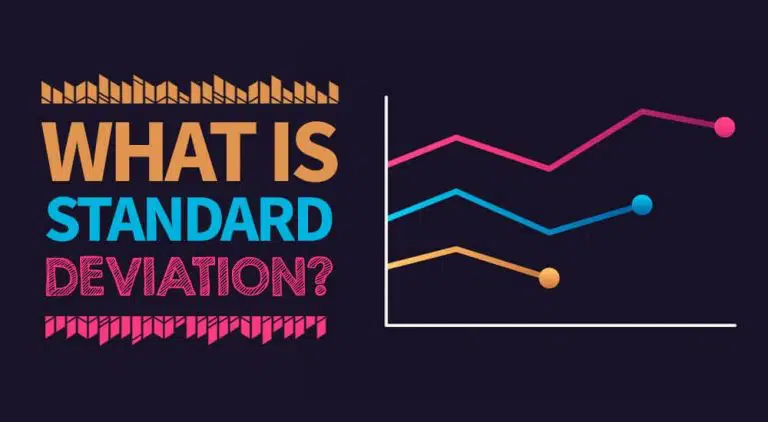A contract is a binding agreement between the buyer and seller that obligates the seller to provide goods or services and obligates the buyer to compensate the seller for such goods or services. A contract sets out the expectations for all both involved.
An organization can choose any procurement contract depending on their requirements, but the firm fixed price (FFP) contract is useful when the scope of work is defined and fixed.
Most construction projects use FFP contracts.
Procurement requires special procedures and legal aid, so most organizations have separate procurement departments to carry out procurement activities. The project manager provides input and oversees contract execution, and the procurement department takes care of payment, procurement closing, and any legal issues if such arise.
A few documents from the planning phase are legal documents and must be developed with the utmost care. An example is the “Statement of Work” (SOW). Such documents should be clear, concise, and complete as they could be used in arbitration court if issues arise.
Anything not included in the contract cannot legally be enforced. The FFP contract limits price adjustment when executed. Without contracts, expectations can be misinterpreted.
Contracts have several components, such as:
- Procurement Statement of Work (SOW)
- Scheduled dates, milestones
- Pricing and payment terms
- Performance reporting
- Inspection, quality, and acceptance criteria
- Incentives and penalties
- General terms and conditions
A contract can be one of four types:

A fixed-price contract can be divided into four categories:
- Firm Fixed-Price Contract
- Fixed-Price Plus Incentive Fee
- Fixed-Price Plus Award Fee
- Fixed-Price Economic Order Adjustment
In today’s article, we will study the Firm Fixed-Price (FFP) Contract
Firm Fixed-Price (FFP) Contract
Definition: In a firm fixed-price (FFP) contract, the scope of work is well-defined and does not change, and the contract price is fixed. Once the contract is signed, the seller must complete the project in accordance with the specifications of the fixed cost and set duration.
Since the scope, cost and duration are fixed in this contract, it is known as a firm fixed-price contract.
Please note that the contract price is not firm in other fixed-price contracts such as FPIF, FPAF, and FPEOA. It changes based on the incentive, award, and inflation.
It is useful when the scope of work is well-defined; otherwise, both buyer and seller will be at risk. The buyer may not get the desired product, while the seller may demand price variation. The FFP transfers the risk to the seller as they take full responsibility for completing the project.
It also gives the seller full control of cost as their profit depends on this. They must complete all the work prudently to ensure they earn profit. They may not receive payment until after meeting milestones or deliverables have been accepted.
The buyer is shielded from exceeding the budgeted expenses, although the contract is more expensive as it takes care of such risks.
Characteristics of Firm Fixed Price Contract
- The contractor assumes the risk: They bear the risk of expenditures exceeding the set project cost.
- Change affects the project cost: Any change in the scope, terms, and conditions increases or decreases the contract value. As the project cost is tied to the scope of work, any adjustment will affect the project cost.
- The scope of work is well-defined and does not change: Here, the performing organization ensures to capture all items and targets required within the set scope, as later, scope change will be expensive.
- Have shorter duration: Due to the fixed scope and cost, it is preferable when the contract duration is short. Even a large scope can be divided into phases for ease of management.
- Not suitable for R&D projects: The FFP contract delivers a tangible product or service; it is not suited for an R&D project where the scope is not defined.
Example of FFP
The contractor must construct an office building for 1,000,000 USD in six months.
Formulating the Fixed-Price Agreement
A fixed-price agreement is formulated at the planning stage with proper referencing of cost practices and standards to limit the financial risk of underestimating costs and significant residual balance.
The residual balance is the deviation between the proposed cost and actual expenditures. The standards for cost estimates require:
- The cost must be reasonable and necessary to carry out the proposed project
- The budget must be formulated using clear and simple terms to avoid misinterpretation.
- Sufficient funding for the project
- Sufficient cash flow to keep the project on track
Monitoring the Fixed-Price Contract
The contract should be monitored throughout its life cycle. Receipt of final payment may be tied to scope validation or sign-off by the buyer. Often, a FFP contract has a penalty clause for late delivery. Hence, the contractor must produce deliverables within the required timeframe at all costs.
Closing the Fixed-Price Contract
The conditions necessary for closing a contract are:
- Completion and acceptance of all deliverables
- Receipts of all payments made to the contractor’s account
Pros of FFP
- The seller must cover any expenses that exceed the set cost
- Well-defined product for the seller
- Less work for buyers
- Strong incentive for the seller to control costs and earn profit
- There is predictability in the scope based on previous experience
- The contractor bears the risk
Cons of FFP
- The contractor may not complete part of the scope if the cost escalates.
- More work is involved for the buyer to write the Scope of Work
- The contractor may underprice the work to make up profits on adjustments
- Incomplete Scope of Work escalates the costs
- Lacks flexibility in pricing
Application of FFP
- Useful for construction projects
- Suitable for off-the-shelf products where a standard rate exists for price determination
- Suitable where definite design or performance specifications are available
- When the buyer does not have time to audit invoices
- Where minimum administration is available, e.g., with buyers such as the government.
- When the contractor is experienced or can leverage previous work to enable estimation.
Summary
A firm fixed-price contract is preferred when the scope of work is well-defined. Managing FFP contracts is easy, and all risks are transferred to sellers. The seller must consider risk factors while quoting the bid and controlling costs throughout the project life cycle.

I am Mohammad Fahad Usmani, B.E. PMP, PMI-RMP. I have been blogging on project management topics since 2011. To date, thousands of professionals have passed the PMP exam using my resources.







